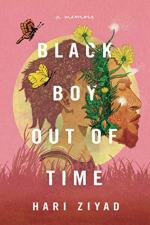
|
| Name: _________________________ | Period: ___________________ |
This test consists of 5 multiple choice questions, 5 short answer questions, and 10 short essay questions.
Multiple Choice Questions
1. What does Hari learn about the treatment of Black employees in the television industry?
(a) They are often rewarded for speaking out about their experiences.
(b) They are encouraged to express their opinions openly.
(c) They face disciplinary action for addressing anti-Black experiences.
(d) They are given opportunities to lead important projects.
2. In Canto II: Queer, "Chapter 10: A Prayer for Choice," why does Hari feel ashamed in his relationship with his queerness?
(a) Because he has rigid ideas of manhood.
(b) Because he desires both men and women.
(c) Because he questions his own sexuality.
(d) Because he is too attracted to thin partners.
3. In Canto III: Free, "Chapter 15: Trigger Warning," what is Hari's view on the term "victim" (193) in the context of sexual violence?
(a) It should always be avoided as it retraumatizes survivors.
(b) It should be used to label survivors who report the crime.
(c) It should only apply to those who press charges against perpetrators.
(d) Its use depends on the survivor's perspective and experience.
4. What impact has the global health pandemic had on marginalized communities, according to Hari?
(a) Increased economic opportunities.
(b) Heightened access to healthcare.
(c) Reduced access to education.
(d) Higher mortality rates, particularly among Black people.
5. In Canto II: Queer, "Chapter 11: My Gender is Black," how does Hari feel about the blame he places on his parents?
(a) He feels justified in blaming his parents.
(b) He is uncertain about whether blaming is necessary.
(c) He realizes blaming is counterproductive.
(d) He continues to blame his parents for his struggles.
Short Answer Questions
1. In Canto III: Free, "Chapter 16: A Prayer for Freedom," why does Hari feel the need to suppress his queerness when caring for Martin?
2. In Canto II: Queer, "Chapter 12: A Prayer for New Language," what significant event occurs between Hari and Timothy at the picnic?
3. How does Hari describe the experience of Black individuals who are essential workers during the pandemic?
4. In Canto II: Queer, "Chapter 12: A Prayer for New Language," what does Hari find particularly appealing about Timothy's appearance?
5. In the "Epilogue: A Prayer for my Grandmother," how does Hari perceive his entry into the television industry through the page program?
Short Essay Questions
1. In Canto III: Free Chapter 15: "Trigger Warning," how does Hari's personal narrative highlight the intersection of race, gender, and sexuality in experiences of sexual violence?
2. In Canto II: Queer, Chapter 13: "Logging Out of Passport Twitter," how does the theme of anti-Blackness shape the events and interactions found in the chapter?
3. In Canto III: Free Chapter 16: "A Prayer for Freedom," examine Hari's unresolved conversation with his mother about his essay on childhood sexual abuse. What does this reveal about the challenges of discussing sensitive topics within families?
4. In Canto II: Queer, Chapter 12: "A Prayer for New Language," how does Hari's engagement to Timothy challenge traditional notions of love and marriage?
5. In Canto II: Queer, Chapter 10: "A Prayer for Choice," how does the relationship between Hari and his cousin Justus reflect the theme of acceptance?
6. In Canto III: Free Chapter 16: "A Prayer for Freedom," reflect on Hari's struggle to reconcile his memories and perceptions of his father's actions with his father's denial. How does this internal conflict affect Hari's sense of self and his relationship with his father?
7. In Canto III: Free Chapter 16: "A Prayer for Freedom," explore the significance of the bathroom sessions between Hari and his father as a form of bonding and communication. How does this ritual reflect Hari's longing for a deeper connection with his father and grandfather?
8. In Canto II: Queer, Chapter 12: "A Prayer for New Language," how does Hari's experience with Lisa shed light on the challenges of maintaining friendships while in a romantic relationship?
9. In Canto III: Free Chapter 14: "A Prayer for Healing," how does Hari explore the interconnectedness of personal stories and experiences in relation to memory and identity?
10. In Canto III: Free Chapter 16: "A Prayer for Freedom," analyze Hari's fear of being perceived as dangerous due to his queerness when caring for Nikkee's toddler, Martin. How does this fear impact Hari's behavior and self-expression?
|
This section contains 1,341 words (approx. 5 pages at 300 words per page) |

|




